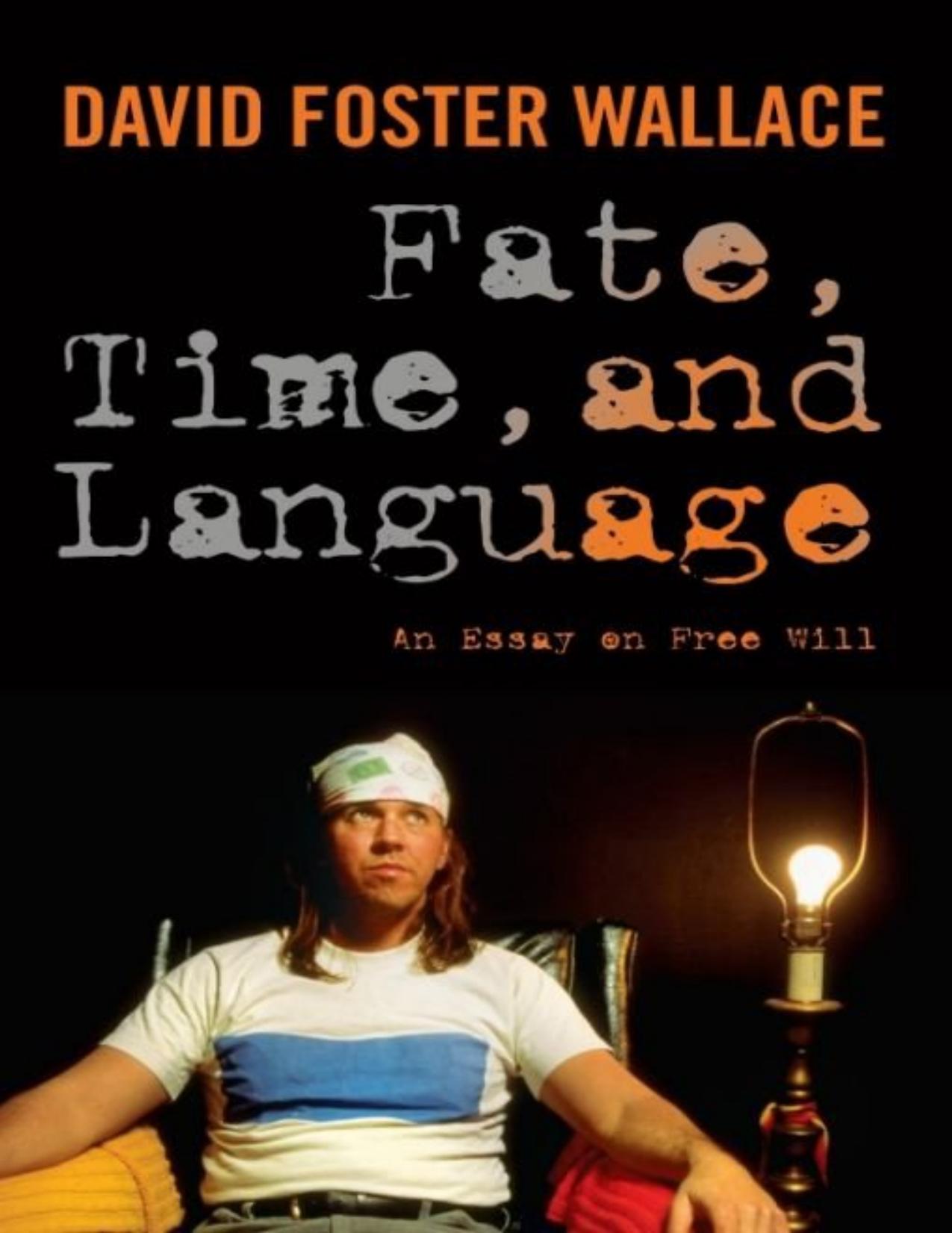Fate, Time, and Language by David Foster Wallace

Author:David Foster Wallace
Language: eng
Format: epub, mobi, pdf
Publisher: Columbia University Press
Published: 2010-11-30T16:00:00+00:00
NOTES
1 Richard Taylor, “Fatalism,” Philosophical Review, 71, 1 (1962): 56-66.
2 Richard Taylor, Metaphysics (Englewood Cliffs, N.J.: Prentice-Hall, 1963), ch. 5.
3 Steven Cahn, “Fatalistic Arguments,” this JOURNAL, 61, 10 (May 7, 1964): 295-305.
4 Metaphysics, p. 58.
5 “Fatalism,” pp. 57-58.
6 Raziel Abelson, “Taylor’s Fatal Fallacy,” Philosophical Review, 72, 1 (1963): 94-95.
7 Metaphysics, p. 58.
8 Ibid., p. 64. Also, “Fatalism,” p. 63.
9 I do not here contravene Taylor’s sixth presupposition—if he does not. If he suspects any such contravention then, since I am merely elucidating presupposition five, it will be up to him to reconcile the implications of his fifth and sixth presuppositions.
10 Metaphysics, pp. 63-64. “Fatalism,” pp. 61-63.
11 Cahn, op. cit., pp. 304-305.
12 Metaphysics, p. 59. “Fatalism,” p. 59.
13 Bruce Aune, in “Fatalism and Professor Taylor,” Philosophical Review, 71 (1962): 515, contends that Taylor introduces necessity and sufficiency in presupposition four; but Taylor is immune to this charge. That Taylor does beg the question of determinism in setting up the first situation, however, is obvious.
14 Cahn, op. cit., makes several statements in Part I of his article which are clearly inconsistent. In the first paragraph of his section on The Crucial Assumptions (p. 296) he reiterates Taylor’s notion of nonlogical necessity, e.g., oxygen is necessary for life. In the first paragraph of Fatalism and Causation (301) he states that neither part of a nonlogical proposition, e.g., oxygen is necessary for life, “is logically necessary or sufficient for the other, nor is either the cause of the other.” Cahn previously states (296) that his argument to the fatalistic conclusion from nonlogical necessity “is made possible by the fact that, for any two events or states of affairs A and B, if A is a necessary condition of B, then B is a sufficient condition of A, and vice versa, and it matters not at all which of them occurs first in time.” Now, surely, Cahn cannot deny that this latter is a statement of the reciprocity of logical necessity and sufficiency. (He even here avoids the surreptitious “for,” which only makes his use of “for” elsewhere more obviously a propositional shift.) (1) Since the law of the excluded middle is presupposed by both Taylor and Cahn, the reciprocity of logical necessity and sufficiency either is or else it is not the decisive relationship by which fatalism is “established”; it cannot both be and not be that relationship, as these passages cited in Cahn’s article indicate. (2) If it is the essential relationship then, in view of the prepositional shift, we have equivocation on the one hand and such absurdities as death being a necessary condition for the ingestion of cyanide on the other hand. (3) If it is not the essential relationship then we have no reciprocity and, hence, no fatalistic argument.
Download
Fate, Time, and Language by David Foster Wallace.mobi
Fate, Time, and Language by David Foster Wallace.pdf
This site does not store any files on its server. We only index and link to content provided by other sites. Please contact the content providers to delete copyright contents if any and email us, we'll remove relevant links or contents immediately.
| African | Asian |
| Australian & Oceanian | Canadian |
| Caribbean & Latin American | European |
| Jewish | Middle Eastern |
| Russian | United States |
4 3 2 1: A Novel by Paul Auster(11119)
The handmaid's tale by Margaret Atwood(6915)
Giovanni's Room by James Baldwin(5969)
Big Magic: Creative Living Beyond Fear by Elizabeth Gilbert(4781)
Asking the Right Questions: A Guide to Critical Thinking by M. Neil Browne & Stuart M. Keeley(4643)
On Writing A Memoir of the Craft by Stephen King(4264)
Ego Is the Enemy by Ryan Holiday(4049)
Ken Follett - World without end by Ken Follett(4004)
The Body: A Guide for Occupants by Bill Bryson(3884)
Bluets by Maggie Nelson(3762)
Adulting by Kelly Williams Brown(3718)
Guilty Pleasures by Laurell K Hamilton(3630)
Eat That Frog! by Brian Tracy(3567)
White Noise - A Novel by Don DeLillo(3465)
The Poetry of Pablo Neruda by Pablo Neruda(3408)
Alive: The Story of the Andes Survivors by Piers Paul Read(3346)
The Book of Joy by Dalai Lama(3276)
The Bookshop by Penelope Fitzgerald(3262)
Fingerprints of the Gods by Graham Hancock(3257)
